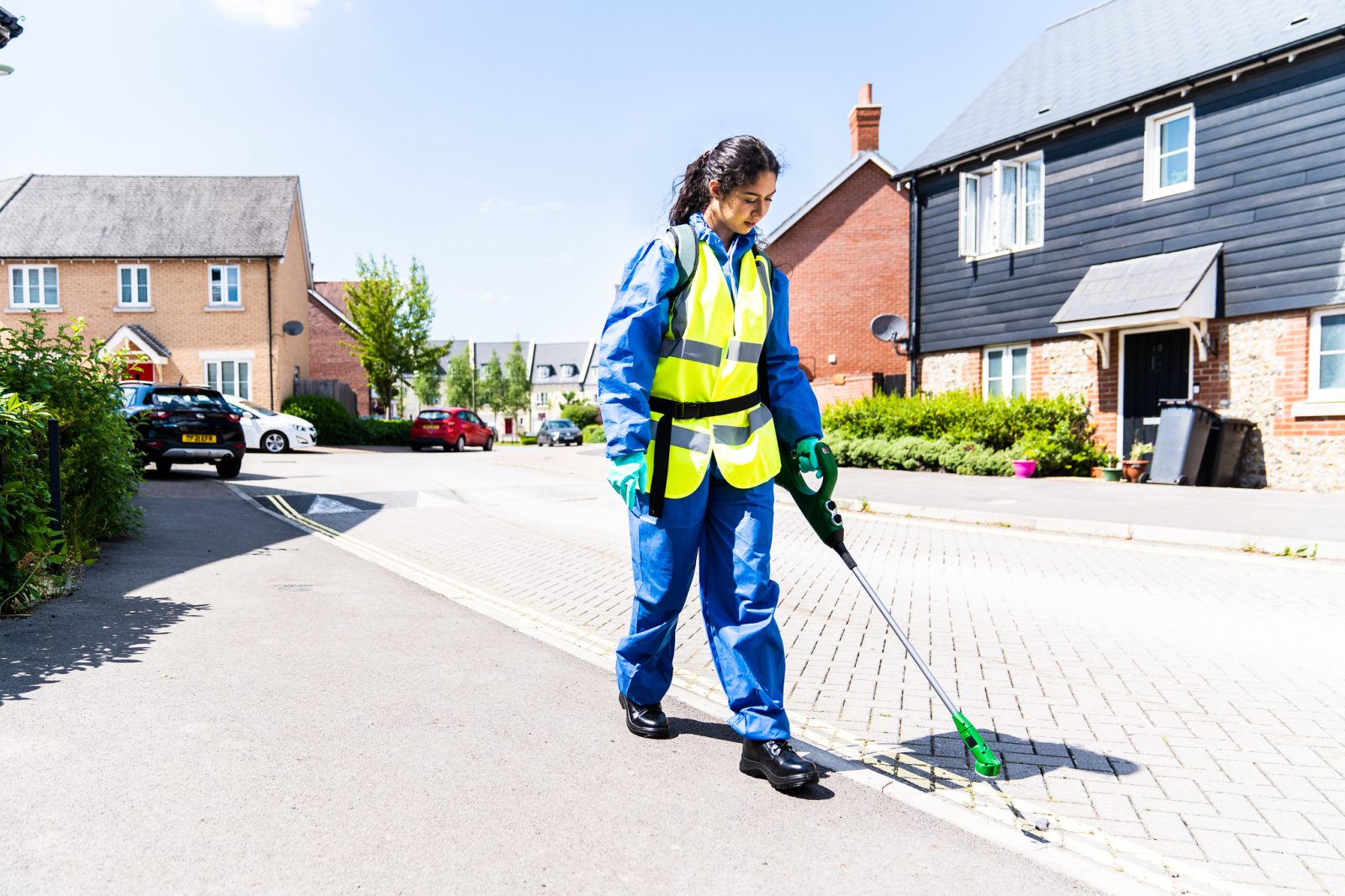Six Tips for Effective Weed Control in Your City
If you’re responsible for weed control in urban areas like towns and cities, then you’ll already be familiar with the ongoing challenges involved. Aside from the negative aesthetic impact of many weeds, they can also become a danger to the public, causing cracks in paving or creating unexpected trip hazards. The results can be expensive and time-consuming to address, not to mention presenting a concern to public safety.
Here are our six tips for keeping weeds at bay in your city:
- Use the right equipment
Choosing the correct herbicide applicator and equipment is vital. Without the correct equipment, there’s a greater risk of uneven, ineffective application of herbicides. Not only can this put staff and workers at risk, but it can also ultimately undermine the impact of your weed control efforts.
Our Nomix Total Droplet Control (TDC) system is ideal for street scenes, parks, and other amenity areas, as it allows for easy and safe targeted application. Nomix TDC uses ready-to-use herbicide packs that connect directly to the applicator, eliminating the need for mixing chemicals. This in-turn removes any risks to the operator and protects the environment by avoiding spillages and reducing spray drift.
- Choose the correct herbicide for the weed and area
Just like choosing the correct equipment, it’s equally important to choose the correct herbicide.
When spraying weeds in an amenity setting, choosing a residual herbicide is an effective choice. Not only can residual herbicides reduce the need for repeated spray applications, but their effect can also be longer-lasting too, leaving you with a tidier environment for longer.
Our Nomix Dual is a unique residual herbicide that is approved for use on hard and soft surfaces. It is the perfect choice for controlling weeds on pavements, streets, and kerbs, but is also equally effective when used on vegetation, shrub beds and gravelled areas. Another great choice is Chikara, a powerful residual herbicide which is ideally suited for industrial use.
High-quality total herbicides can be an equally effective choice. Total herbicides will control both grass weeds and broadleaf weed species, for example Roundup Provantage and Hilite.
Alternatively, if you’re looking to remove weeds without damaging the surrounding grass and vegetation, choosing a selective herbicide could be the most suitable option. Some examples of selective herbicides that protect grassland include Garlon Ultra and Synero. Both are for use on tough and woody weeds, for example Japanese Knotweed and not for use on turf.
- Use an integrated approach
There’s rarely a simple solution to long-lasting and effective weed control. That’s why an integrated approach is often the most effective. By blending your weed control efforts with regular sweeping, surface maintenance and cultural controls, you can significantly reduce the growth of weeds, and the volume of herbicide applications needed.
- Get the right training to operate safely
Despite the range of different products and application systems available on the market, none of them are fully effective without the right knowledge and expertise. It’s crucial that operators have suitable certifications to use professional herbicides; both City and Guilds (NPTC) and LANTRA qualifications are recognised by HSE as meeting this requirement.
It’s important to make sure your storage facilities are well maintained and the appropriate equipment is in good working order.
- Protect the environment
It’s vital to consider the immediate implications of herbicide application and any wider environmental impact.
Some immediate considerations include:
- Ensure that the product you’re using is approved for the area you are treating.
- Ensure the application is targeted and carried out in the appropriate conditions.
Some wider environmental impacts include:
- Minimising the emissions your application process gives off.
- Avoiding unnecessary or excessive water use.
- Considering how the technology you use may affect the environment, for example, the type of battery used.
Our Nomix TDC system uses clean battery technology, and zero emissions at the point of the application when applied on foot. It doesn’t require any water for product mixing or in the application process – helping reduce water use and protect the environment.
- Get the right advice
Always consult a specialist advisor before you start treating an amenity area; Nomix advisors are BASIS registered to provide advice on amenity weed control, including on streets, pavements, in parks and industrial areas. If you have any questions or would like some advice, then please get in touch.
